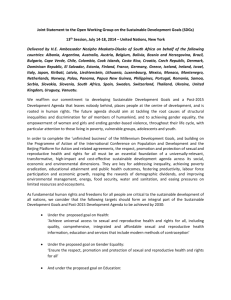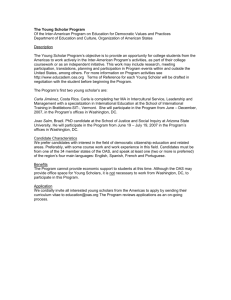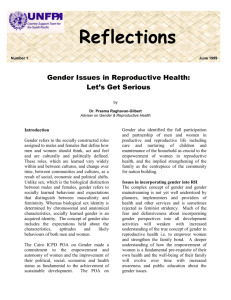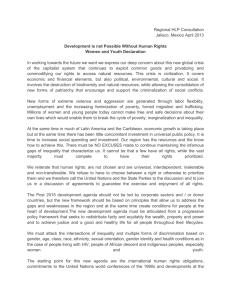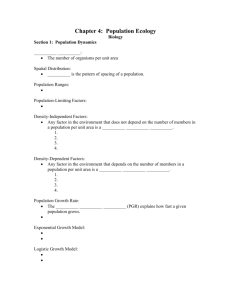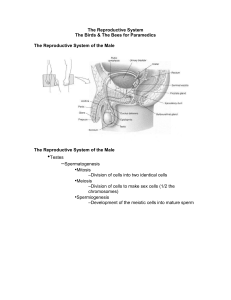OAS Speech: Women's Rights & Reproductive Health
advertisement
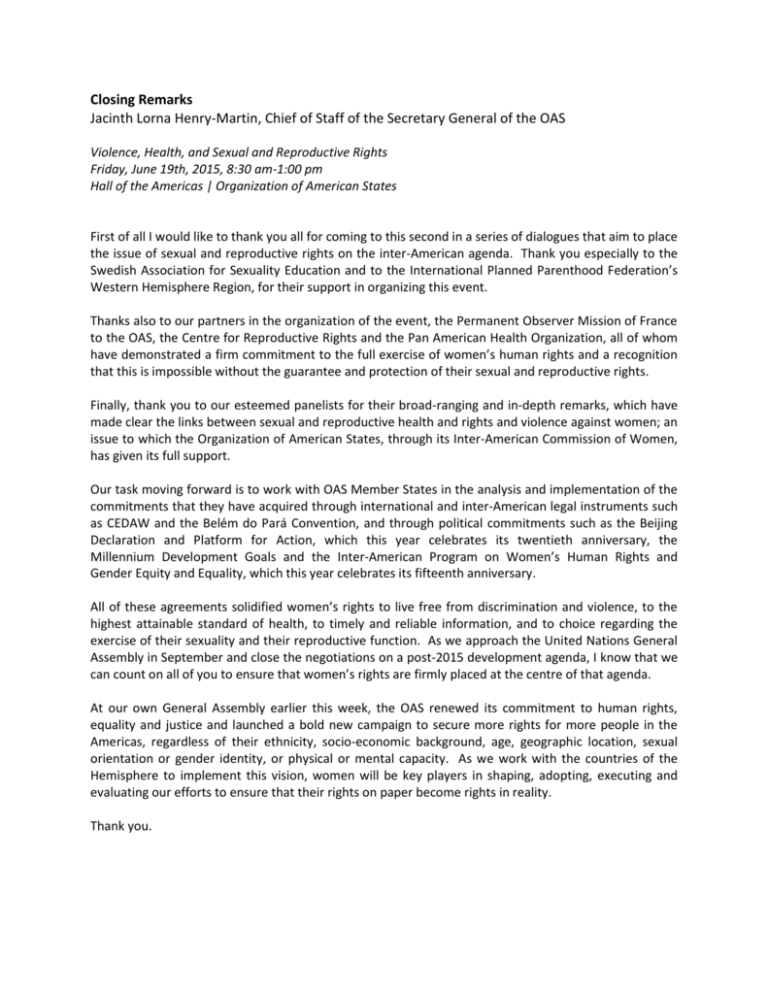
Closing Remarks Jacinth Lorna Henry-Martin, Chief of Staff of the Secretary General of the OAS Violence, Health, and Sexual and Reproductive Rights Friday, June 19th, 2015, 8:30 am-1:00 pm Hall of the Americas | Organization of American States First of all I would like to thank you all for coming to this second in a series of dialogues that aim to place the issue of sexual and reproductive rights on the inter-American agenda. Thank you especially to the Swedish Association for Sexuality Education and to the International Planned Parenthood Federation’s Western Hemisphere Region, for their support in organizing this event. Thanks also to our partners in the organization of the event, the Permanent Observer Mission of France to the OAS, the Centre for Reproductive Rights and the Pan American Health Organization, all of whom have demonstrated a firm commitment to the full exercise of women’s human rights and a recognition that this is impossible without the guarantee and protection of their sexual and reproductive rights. Finally, thank you to our esteemed panelists for their broad-ranging and in-depth remarks, which have made clear the links between sexual and reproductive health and rights and violence against women; an issue to which the Organization of American States, through its Inter-American Commission of Women, has given its full support. Our task moving forward is to work with OAS Member States in the analysis and implementation of the commitments that they have acquired through international and inter-American legal instruments such as CEDAW and the Belém do Pará Convention, and through political commitments such as the Beijing Declaration and Platform for Action, which this year celebrates its twentieth anniversary, the Millennium Development Goals and the Inter-American Program on Women’s Human Rights and Gender Equity and Equality, which this year celebrates its fifteenth anniversary. All of these agreements solidified women’s rights to live free from discrimination and violence, to the highest attainable standard of health, to timely and reliable information, and to choice regarding the exercise of their sexuality and their reproductive function. As we approach the United Nations General Assembly in September and close the negotiations on a post-2015 development agenda, I know that we can count on all of you to ensure that women’s rights are firmly placed at the centre of that agenda. At our own General Assembly earlier this week, the OAS renewed its commitment to human rights, equality and justice and launched a bold new campaign to secure more rights for more people in the Americas, regardless of their ethnicity, socio-economic background, age, geographic location, sexual orientation or gender identity, or physical or mental capacity. As we work with the countries of the Hemisphere to implement this vision, women will be key players in shaping, adopting, executing and evaluating our efforts to ensure that their rights on paper become rights in reality. Thank you.
